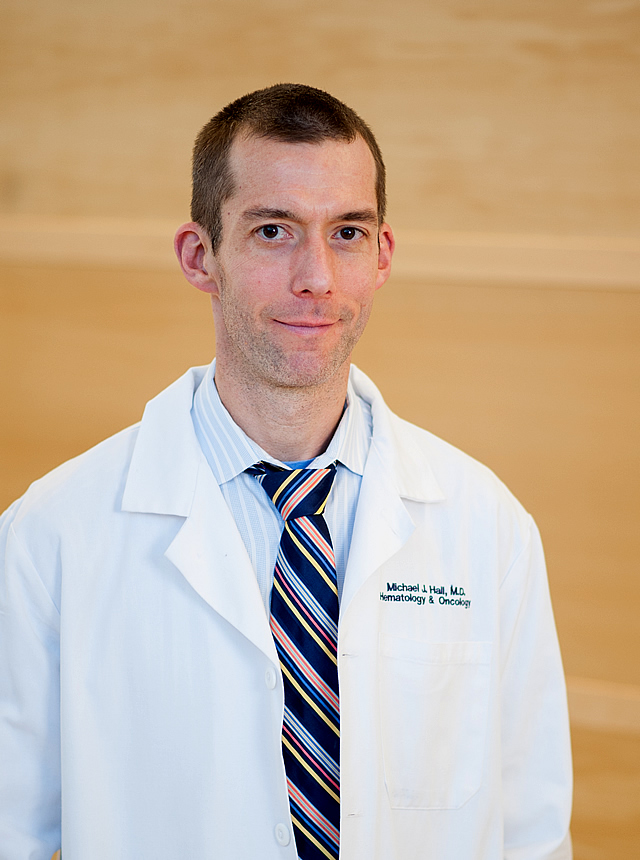Weather Alert: Following the winter storm, all Temple Health hospitals, campuses and clinical locations remain open. Patients will be contacted directly if their visit is affected. Please check TempleHealth.org or FoxChase.org for updates and monitor myTempleHealth for changes to scheduled appointments.
Breadcrumb
- Home
- Fox Chase Cancer Center News
- Researchers Identify Several New Genetic Mutations that Increase Risk of Breast and Ovarian Cancer
Researchers Identify Several New Genetic Mutations that Increase Risk of Breast and Ovarian Cancer

PHILADELPHIA (June 27, 2017) – Analyzing a panel of 25 genes, researchers found mutations in genes associated with increased risk of breast or ovarian cancer in approximately seven percent of women tested through a large commercial laboratory. In addition, the study helps to better quantify the magnitude of cancer risk associated with the genes tested. Depending on the gene, they found increased risk between two- and six-fold for breast cancer and two- and forty-fold for ovarian cancer.
Michael J. Hall, MD, MS, associate professor of medicine in the Department of Clinical Genetics at Fox Chase Cancer Center and Allison W. Kurian, MD, MSc associate professor of medicine at the Stanford University Medical Center, co-authored the paper, which appears in JCO Precision Oncology.
“Improved technology and increased access have made it possible to identify a broader range of genetic mutations associated with increased cancer risk, but it has been difficult to separate risk associated with mutations and risk conferred by strong family history,” said Hall. “Our study shows whether the risk associated with a given gene mutation is high or low, which will help guide decisions about whether medical intervention is warranted.”
Running complementary analyses on a real-world sample of more than 95,000 women with and without cancer, Kurian and Hall found that their analyses showed similar results. Hall said that it was important to confirm the findings with different approaches.
The study is a step toward adding more precision to the rapidly expanding field of genetic testing. It also found several new associations of breast and ovarian cancer to genes that had not been previously detected in studies with smaller sample sizes.
“As more patients with cancer and at risk of cancer get access to genetic testing, we will gain a more comprehensive view of which genes have an impact on cancer risk and how large those risks are. Some genetic mutations will necessitate increased screening, but others may be low enough that we don’t need to do more than standard prevention and early detection,” Hall said.
Fox Chase Cancer Center (Fox Chase), which includes the Institute for Cancer Research and the American Oncologic Hospital and is a part of Temple Health, is one of the leading comprehensive cancer centers in the United States. Founded in 1904 in Philadelphia as one of the nation’s first cancer hospitals, Fox Chase was also among the first institutions to be designated a National Cancer Institute Comprehensive Cancer Center in 1974. Fox Chase is also one of just 10 members of the Alliance of Dedicated Cancer Centers. Fox Chase researchers have won the highest awards in their fields, including two Nobel Prizes. Fox Chase physicians are also routinely recognized in national rankings, and the Center’s nursing program has received the Magnet recognition for excellence six consecutive times. Today, Fox Chase conducts a broad array of nationally competitive basic, translational, and clinical research, with special programs in cancer prevention, detection, survivorship, and community outreach. It is the policy of Fox Chase Cancer Center that there shall be no exclusion from, or participation in, and no one denied the benefits of, the delivery of quality medical care on the basis of race, ethnicity, religion, sexual orientation, gender, gender identity/expression, disability, age, ancestry, color, national origin, physical ability, level of education, or source of payment.
For more information, call 888-369-2427